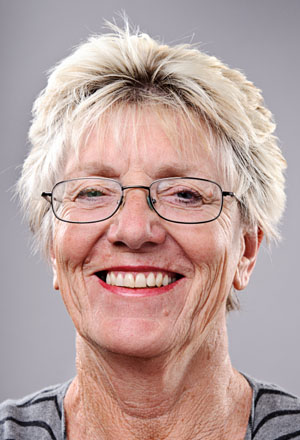An alternative to Levelling-up:
Tackling Inequalities by involving communities
in place-shaping, the social economy and gender equalities
Su Maddock
Read the full report here: Alternative to levelling up Maddock April 2022
Synopsis
Working British people are worse off in 2022 than they were in 2019 and as fuel prices rise soon the British will be experiencing poverty not seen since the 1950s. The pandemic revealed the scale of inequalities in Britain. Levelling-up is no longer a matter of rebalancing the North and the Southeast but creating wealth and opportunities for the ‘left-behind’ and of developing more sustainable, green, and caring local economies.
This paper argues that involving communities in the social economy, transforming public services and wealth creation will create pathways out of poverty in both cities and rural areas. This is not rocket science but a shift of focus from large shiny infrastructure projects to small, community-based, innovation, which works for those most in need which grow when supported by accelerators and progressive, local leadership.
There is an economic model emerging at the local level where both political and community leaders are transforming public services and addressing inequalities by involving communities in the social economy and gender equalities.
Introduction
In 2021 Marmot estimated that 14.5mn people[1] in the UK were living in permanent poverty, by 2022 the Resolution Foundation, estimated that this figure could rise to 20mn given massive price rises, for fuel, food, and household bills when wages and benefits were capped at 3% even though inflation was precited to be 9% by the December 2022.
The pandemic has left fifty percent of Black and Asian children living in poverty and revealed the extent of pre-existing inequalities, affecting Black and Asian communities, single parents[2], those with disabilities, pensioners, and women in all groups most.[3] [4]
Meanwhile the rich, including ministers, had boosted their income by five percent or more[5] when public sector workers have two or three jobs did not enough to pay the bills. The huge
[1] Marmot Addressing the National Sydemic, place-based problems and solutions to UK health inequalities; 2021
[2] Bristol Women’s Commission 2021 90% single parents are women. https://www,fairplysouthwest.org.uk/ukimages/Women_and_Economy_Report_.pdf
[3] Some hard truths about the gender pay gap, Tim Harford. The FT magazine. Jan 22/ 2022
[4] The Fawcett Sex and Power Index; Friday, 21 Jan 2022
[5] NEF 2021 Dec
disparity between the rich and working people has escalated inequalities and worsened the experience of poverty across the UK and billionaires in the UK own £576bn worth of assets.
In February 2022, the government announced their White Paper on Levelling Up which was met with dismay by Sir Michael Marmot (2010, 2020 & 2021[1]) who had repeatedly shown the correlation between inequalities and poor health. Marmot said levelling-up fund were derisory[2]and would not compensate for ten years of local public service cuts nor replace lost essential services in the poorest communities which would require massive investment[3]. Lisa Nandy, Shadow Secretary for Levelling-up, Communities and Housing agreed
The challenge for politicians is to address the damage done by years of austerity and unfair funding imbalance between the North and the South and have sensitivity to how it feels to be left behind[4].
Lisa Nandy said
None of this is new. ... they have cut the funding for buses; scrapped rail promises to the north and where is the digital Britain we were promised? …. We don’t need to look to Rome for inspiration- Preston, Wigan and Grimsby people are delivering change for themselves, imagine what if government gave us the power to make the decisions ourselves.[5]
The most challenging problem is reaching those most affected by inequalities and poverty.
Throwing small packets of investment into preferred towns with no strategy or plan will fail, because it will do nothing for the most disadvantaged in those towns, just as ‘Trickle-down’ from large infrastructure projects rarely reaches the ‘left behind’[6].
The government needs to address entrenched inequalities caused by the decline of previous industries and made worse by austerity. Levelling-up investment must increase and stop focusing on large infrastructure projects and start reaching those living in deprived areas, working in the gig economy with no access to better paid work or support apart from food banks; and focus on mainstream investment in services and integrate economic policy with health and social care.
Read the full report here: Alternative to levelling up Maddock April 2022
[1] Marmot Addressing the National Sydemic, place-based problems and solutions to UK health inequalities; 2021
https://www.instituteofhealthequity.org/resources-reports/marmot-review-10-years-on/the-marmot-review-10-yeras-on-the-full-report.pdf
https://www.health.org.uk/publications/build-back-fairer-the-covid-19-marmot-review
[2] Professor Michael Marmot, World at One, BBC R4 Feb 2.2022
[4] Lisa Nandy, Shadow Secretary for levelling up. Toby Helm the Observer, 05.12.21
[5] Lisa Nandy, MP for Wigan speech to parliament, 2nd Feb 2202
[6] Si Maddock, 2005 Social Regeneration











